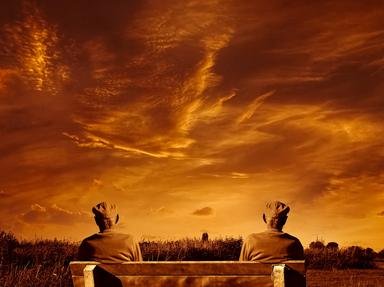Quiz Answer Key and Fun Facts
1. Fozzie Bear, the "Muppet Show's" resident comic, would follow up the delivery of one of his terrible jokes with which of the following catchphrases?
2. "Na-nu Na-nu" (or Nanoo Nanoo) is a phrase often uttered by Mork (actor Robin Williams) on the television series "Mork and Mindy". What did the term mean?
3. The Paley Centre for Media once voted "Yada Yada Yada" as the number one funniest phrase on television. Is it true or false that the phrase first appeared on television in an episode of "Seinfeld" in 1997?
4. Half human, half robot, he yells "Sowsers! Bowsers!" as he fights the evil Spydra and her henchmen, Mulch and Hummus. He is which of the following television characters?
5. Which of the following characters is generally seen as being responsible for popularising the phrase "zoinks"?
6. Which television programme, that first aired in 1979, had Tom Wopat and John Schneider regularly yelling out "Yeeee-Haaa!"?
7. Fred Flintstone appeared in an episode of "The Grim Adventures of Billy & Mandy" sprouting which variation of his famous catchphrase "Yabba Dabba Doo"?
8. Which of the following characters from "Happy Days" was regularly heard to utter the phrase "Wa Wa Wa"?
9. One group that severely tested the English language was the "Teenage Mutant Ninja Turtles". Which of the following phrases did they *NOT* use on a regular basis?
10. The following words were not created, but still have managed to make mince meat of English. Which of the following characters is guilty of this crime with their use of "Holy" exclamations such as "Holy Priceless Collection of Etruscan Snoods"?
Source: Author
pollucci19
This quiz was reviewed by FunTrivia editor
Gamemaster1967 before going online.
Any errors found in FunTrivia content are routinely corrected through our feedback system.

